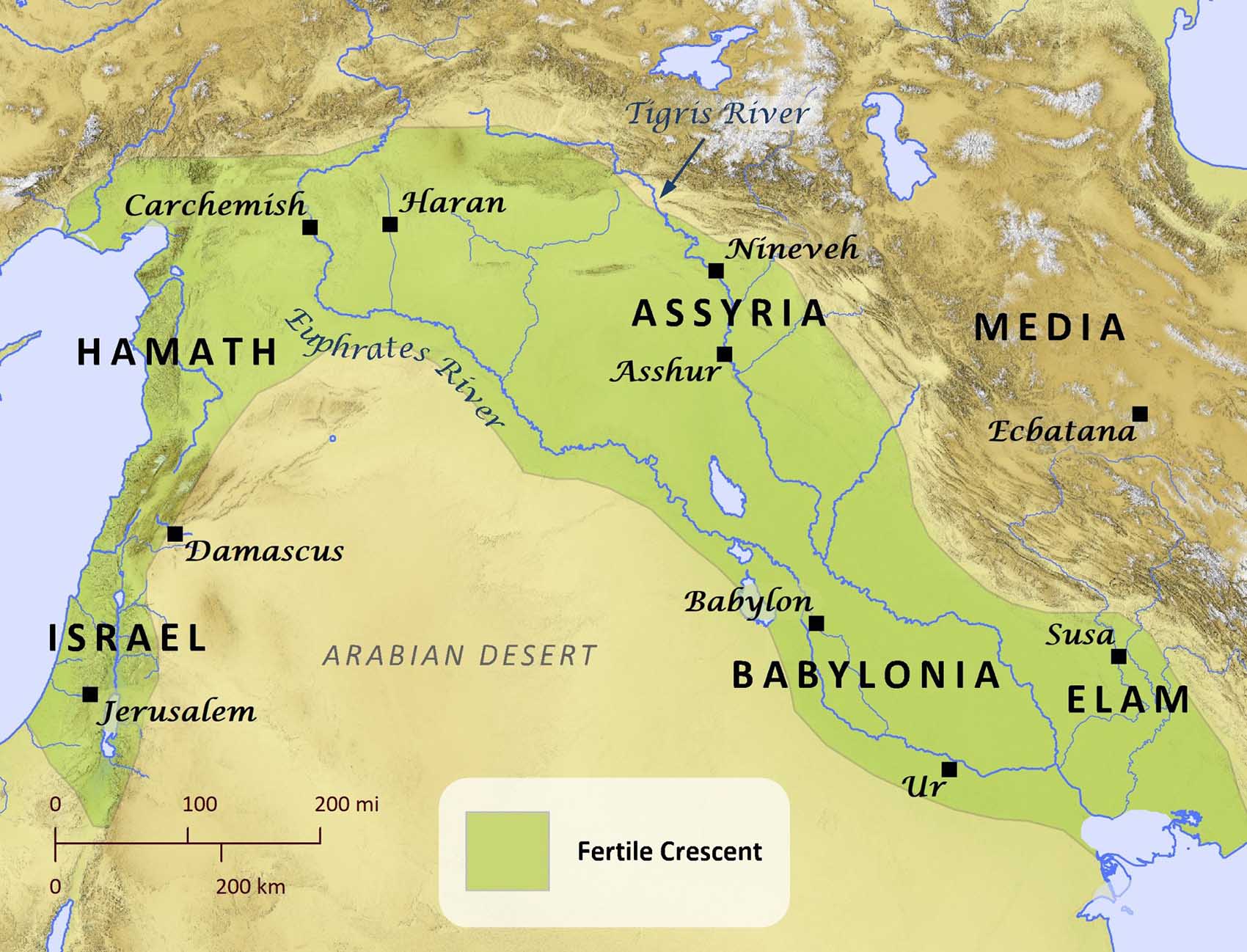Daniel further reminds Belshazzar that Nebuchadnezzar was humiliated by God because of his pride. For seven years, the king lived like a wild animal, until he acknowledged that God is the true ruler of mankind, and grants authority as He chooses.
Daniel continues to educate Belshazzar that earthly authority comes from the heavenly ruler, God. Speaking of Belshazzar’s predecessor, Nebuchadnezzar, Daniel explains that all of the greatness and power during his reign was only because God gave it to him. God also took it away from him. Daniel teaches that when Nebuchadnezzar’s heart was lifted up and his spirit became so proud that he behaved arrogantly, God took his authority away. There were severe consequences for Nebuchadnezzar’s arrogance. Daniel tells of how he was deposed from his royal throne and his glory was taken away from him by God, not by another conqueror.
Nebuchadnezzar was at his very height as king over Babylon when this happened. There was no foreign invader or turmoil in his kingdom—things were going well. The king’s boast was this: “Is this not Babylon the great, which I myself have built as a royal residence by the might of my power and for the glory of my majesty?” (Daniel 4:30). Because of his pride, Nebuchadnezzar’s throne and glory were taken away from him in an instant by God, who is over all.
Not only was the king deposed, he was humbled in the extreme. Nebuchadnezzar was driven away from mankind, and his heart was made like that of beasts, and his dwelling place was with the wild donkeys. He began to behave and think like an animal so that he was no longer fit to live around other people. He was isolated and spent time among untamed animals. He was given grass to eat like cattle, and his body was drenched with the dew of heaven. It is a striking image: a once great king who was formerly dressed in purple and jewels, eating the finest food available, then living as a ragged vagrant chewing grass and sleeping in damp fields among wild donkeys.
Nebuchadnezzar’s circumstances eventually changed for the better, but for one reason only. He was sent to live like an animal because of his great arrogance, but he was restored as king once he recognized that the Most High God is ruler over the realm of mankind. Nebuchadnezzar had attributed his greatness to himself, rather than to God, and he was humbled for it. He finally concluded that God, as the true ruler over mankind, sets over it whomever he wishes.
Nebuchadnezzar wrote of his humiliation in Daniel 4, declaring “I praise, exalt, and honor the King of heaven,” (Daniel 4:37). He no longer glorified himself above the Most High God. Rather, he recognized that God’s “kingdom is an everlasting kingdom” (Daniel 4:3). A repeated greeting toward the kings in the book of Daniel is, “O king, live forever!” (v. 10). But all men die, and all kingdoms end or are given to new rulers, and Nebuchadnezzar finally understood it was God who was the forever king over a forever kingdom. It is God who “is able to humble those who walk in pride” (Daniel 4:37).
Biblical Text
20 But when his heart was lifted up and his spirit became so proud that he behaved arrogantly, he was deposed from his royal throne and his glory was taken away from him. 21 He was also driven away from mankind, and his heart was made like that of beasts, and his dwelling place was with the wild donkeys. He was given grass to eat like cattle, and his body was drenched with the dew of heaven until he recognized that the Most High God is ruler over the realm of mankind and that He sets over it whomever He wishes.
Check out our other commentaries:
-
Hosea 6:4-6 meaning
The LORD accuses and condemns both Israel and Judah for their covenant infidelity and false devotion to Him. He tells the people that He desires...... -
Isaiah 53:1-3 meaning
Isaiah continues an unusual prophecy about the Messiah that He began in Isaiah 52:13. He predicts that the neither He nor the Messiah will be...... -
Romans 9:6-8 meaning
God’s promises have not failed. Abraham was a faithful, obedient servant toward God, but that doesn’t mean all descendants of Abraham followed his example. There...... -
Exodus 12:1-20 meaning
In preparation for the coming of the last plague, the LORD gave explicit instructions to Moses and Aaron about how to commemorate their deliverance by...... -
Romans 1:16-17 meaning
Paul boldly preaches the gospel because it is the power of God for all who believe. Initially, faith saves us from hell, but for the......



